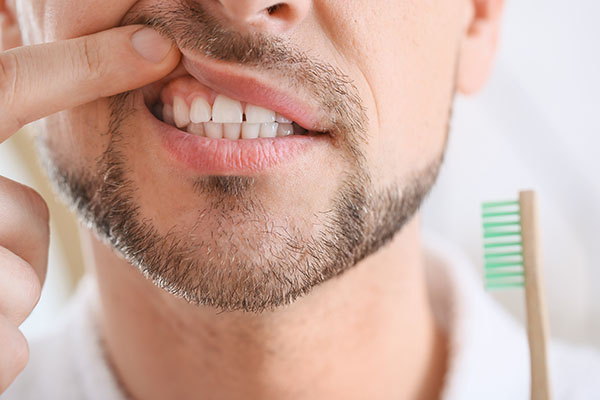 General dentistry offers multiple ways to cure bleeding gums, with many of them being simple solutions. Bleeding gums should not be ignored; they could be caused by something as minor as brushing too aggressively or something as serious as chronic gum disease. A visit to a dentist is in order if your gums often bleed after brushing or flossing your teeth.
General dentistry offers multiple ways to cure bleeding gums, with many of them being simple solutions. Bleeding gums should not be ignored; they could be caused by something as minor as brushing too aggressively or something as serious as chronic gum disease. A visit to a dentist is in order if your gums often bleed after brushing or flossing your teeth.
How general dentistry addresses bleeding gums
A dentist addresses bleeding gums by examining the patient and diagnosing its root cause. Treatment for this issue often falls under the term periodontal therapy. Within this term are different methods used to treat the gums and possibly fight back gingivitis, preventing it from progressing into severe gum disease. These methods range from surgical to non-surgical, their necessity based on the condition's diagnosis and seriousness.
In some cases, bleeding gums can be caused by something as simple as brushing too hard. In such cases, the dentist might teach the patient proper brushing techniques and encourage them to use a soft-bristled toothbrush.
Some of the treatments that might be recommended for patients with bleeding gums include:
- Antibacterial rinses: Used daily as a part of the patient’s oral hygiene routine, this would gradually cut down bacteria populations in the mouth, helping to restore oral health. They can help to reverse gingivitis or to manage more severe gum disease.
- Scaling and root planing: This treatment involves going deep in the pockets of the gum line to remove built-up tartar and plaque. This helps to halt the spread of the disease, stopping further damage.
- Laser dentistry: Lasers can be utilized to combat gum disease. This type of therapy is widely used, with accurate results and little to no side effects.
- Oral surgery: Usually the last step, surgical treatments can be used to restore the gums and teeth structures that have been damaged from periodontitis, severe gum disease. This procedure is not complicated, and success rates are very high.
Finding the right solution
Consulting with a dentist is the first step in treating gum disease. General dentistry works best the earlier the symptoms are addressed. The faster a patient acts, the better chance any infection in their gums can be reversed.
If the patient’s gum disease has already progressed to the advanced stage, a dentist can perform treatments that slow down the disease’s progression and repair structures in the mouth that have been damaged by it.
Making a move towards better health
Talk to your dentist about your bleeding gums so they can help to find out what its root cause is. Reversing the first stage of gum disease is not particularly challenging. Simply improving your oral hygiene and getting regular teeth cleanings is often enough.
Treatments like root scaling and planing, bone grafts, and laser treatment can be used to minimize the damage caused by more advanced gum disease. Call or visit our TJ Family & Implant Dentistry PLLC clinic to set up an appointment with our dentist to explore treatment options.
Request an appointment or call TJ Family & Implant Dentistry PLLC at 979-721-9410 for an appointment in our Bryan office.
Related Posts
A general dentistry clinic can provide treatments for a knocked-out tooth. This type of dental injury often happens because of a strong impact on the face. It can be from a fight, a vehicular accident, or a sports injury. If you want to know if a general dentistry clinic can restore your dislodged or knocked-out…
Fluoride is commonly used in general dentistry to reduce the risk of tooth decay and strengthen enamel that is weakened from acidic attacks that can occur when food particles and bacteria combine in the mouth. This article discusses how and when a general dentist might recommend fluoride for patients.Fluoride can be used for preventive purposes…
General dentistry helps you to deal with issues like toothaches. Toothaches are your brain’s way of telling you that there is something wrong with a tooth. It can be caused by things like tooth decay, damage to a tooth’s structures, or infection. A mild toothache that goes away on its own is often not a…
